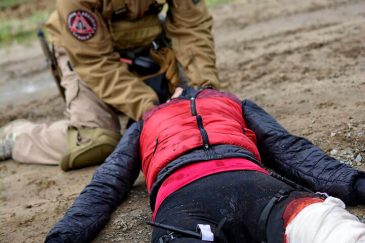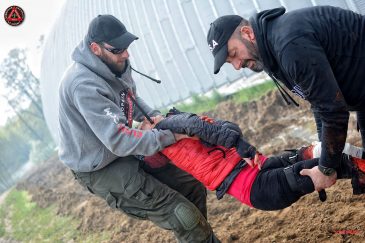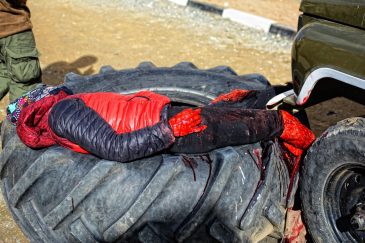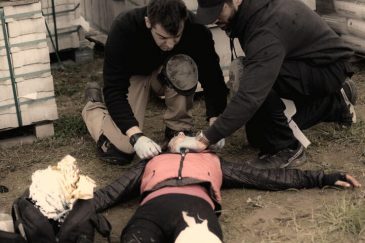Course info
It is a 4-day course recognised by Security Industry Authority, focusing on interventions and management of common medical incidents. The ESA Experienced Instructors will make all students ready to be a conscious and confident person who arrives as the first one on the incident site.
The course ends with Qualsafe Level 3 Award in First Response Emergency Care, the most current and recognized medical qualifications in the security industry. This qualification, along with CPO Level 3, is required for the SIA license.
The main goal of this qualification is to support a role in the workplace by giving ESA students a more comprehensive understanding of first aid along with an understanding of how significant medical/environmental intelligence is when dealing with a range of casualties.
Units:
Providing First Response Emergency Care
Medical Intelligence and Environmental Awareness
Safe Use of an Automated External Defibrillator
This course is dedicated especially for:
- Close Protection Operators
- Police
- Civilian Employees
- Industry workers
- Public officers
- Other, operating in the city / countryside, understanding that the Medical Service will not always be right on time.




The course finishes with:
Medical Scenarios with wound imitation
Final examination: theory and practice
Practical observation
Written/Oral questioningSkill prerequisites
none
Required gear
Tactical clothes,
green or blue head lighter.Topics
At the end of the course, the students will be able to:
- Understand the role and responsibilities of the first person on the scene during an emergency incident
- Understand the principles of scene management in pre-hospital care
- Know the principles required for effective and safe patient assessment in the pre-hospital care setting
- Assess an incident for dangers and respond appropriately
- Assess the patient’s levels of consciousness
- Recognize and manage a patient with a catastrophic bleed
- Assess and manage a patient’s airway blockage and recognize and manage a patient with a suspected spinal injury
- Assess and manage a patient who is not breathing normally
- Assess a patient’s circulation and manage a patient who is in shock
- Assess a patient’s level of disability
- Know the principles of exposing the patient for further assessment and act upon environmental considerations
- Know how to recognize and manage a range of medical emergencies in the pre-hospital care setting
- Know how to recognize and manage a range of trauma-related emergencies in the pre-hospital care setting
- Understand the recognition features of red flag sepsis in the pre-hospital care setting
- Know how to recognize emergency care equipment to assist the healthcare professional
- Manage a pediatric patient who is not breathing normally
Duration: 4 days Course prices includes accommodation and food for a complete training
Pricing: $850.




